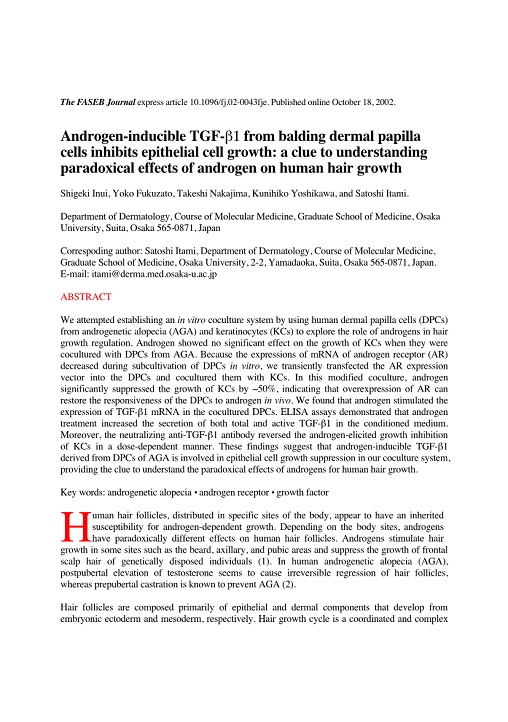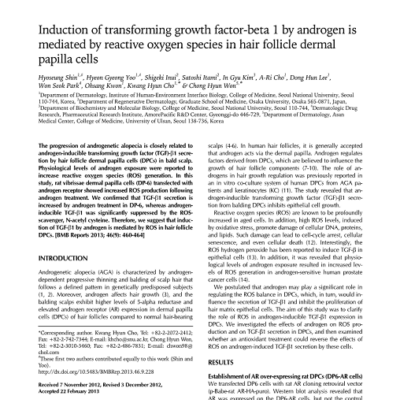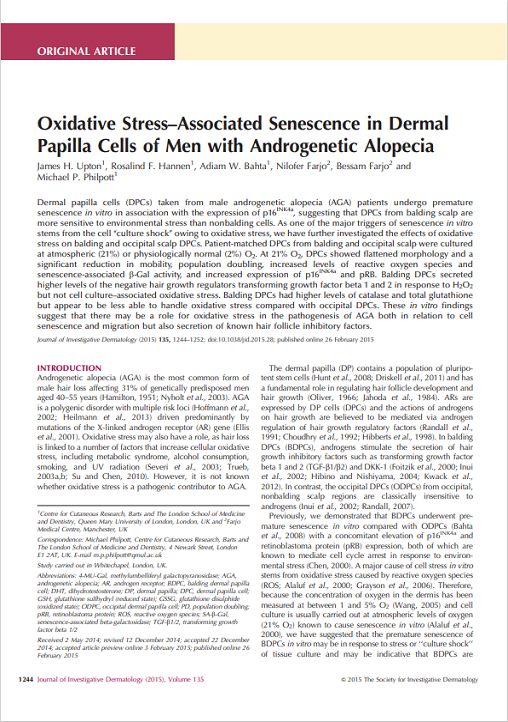
#19 A Research Paper on Suppression of Keratinocyte Growth by Androgen-Induced TGF-β1 from Dermal Papilla Cells
Shigeki Inui, Yoko Fukuzato, Takeshi Nakajima, Kunihiko Yoshikawa, and Satoshi Itami (2002) Androgen-inducible TGF-𝛃1 from balding dermal papilla cells inhibits epithelial cell growth: a clue to understanding paradoxical effects of androgen on human hair growth. The FASEB J. V16, Issue 14, 1853e.
This study demonstrates that TGF-β1 produced by dermal papilla cells (DPCs) in alopecia patients inhibits the growth of epithelial cells (keratinocytes). This was shown using a co-culture system where human DPCs with androgen receptor gene expression vectors were co-cultured with keratinocytes and exposed to androgen. Androgen treatment resulted in approximately 50% suppression of keratinocyte growth. Further analysis revealed that TGF-β1 was the signaling molecule responsible for this effect. These findings suggest that androgen-induced TGF-β1 from DPCs plays a crucial role in suppressing keratinocyte growth and contributing to alopecia.
Key Highlights:
Androgen exposure to DPC cells in a co-culture system with keratinocytes significantly suppressed keratinocyte growth.
TGF-β1 neutralization abolished the androgen-induced suppression of keratinocyte growth, confirming the role of TGF-β1.
The mechanism of androgen-induced TGF-β1 production in DPCs remains to be investigated.
Connection to Previous Study (#18)
The findings of this study align with those of the previous study (#18), which suggested that reactive oxygen species (ROS) mediate androgen-induced TGF-β1 production in DPCs. This suggests that ROS may play an upstream role in the TGF-β1-mediated suppression of keratinocyte growth observed in alopecia patients.






